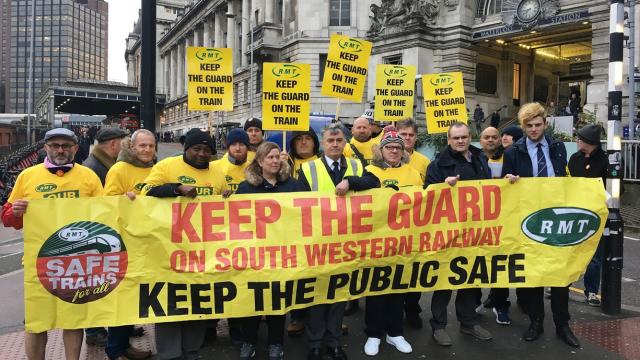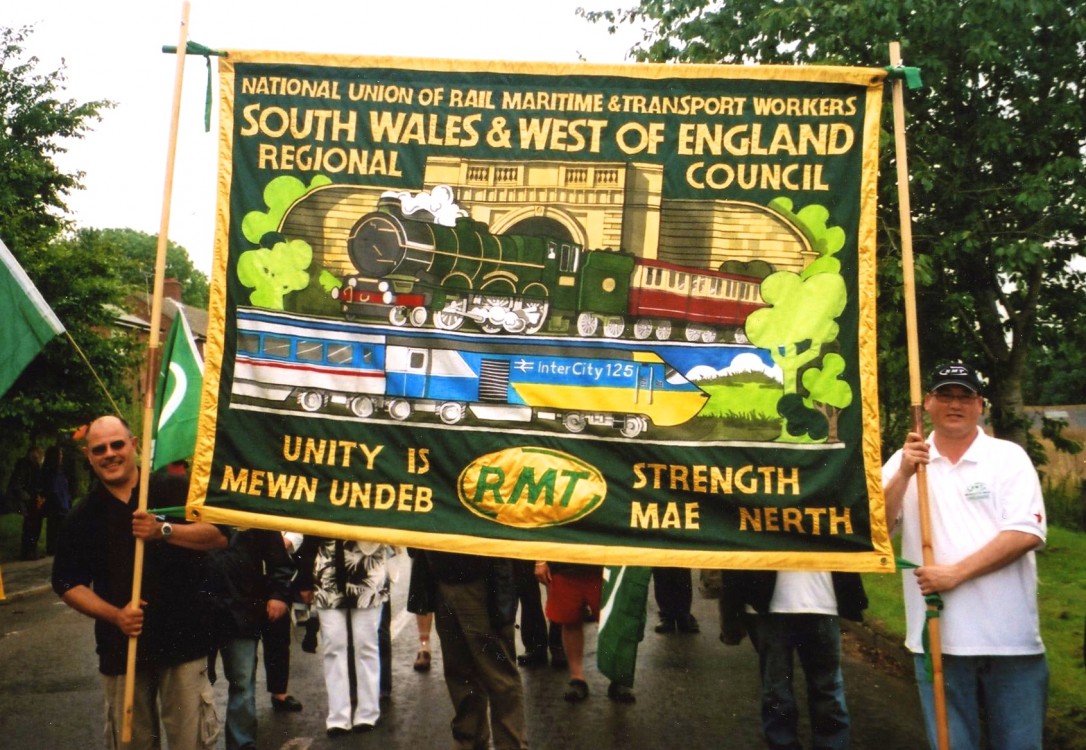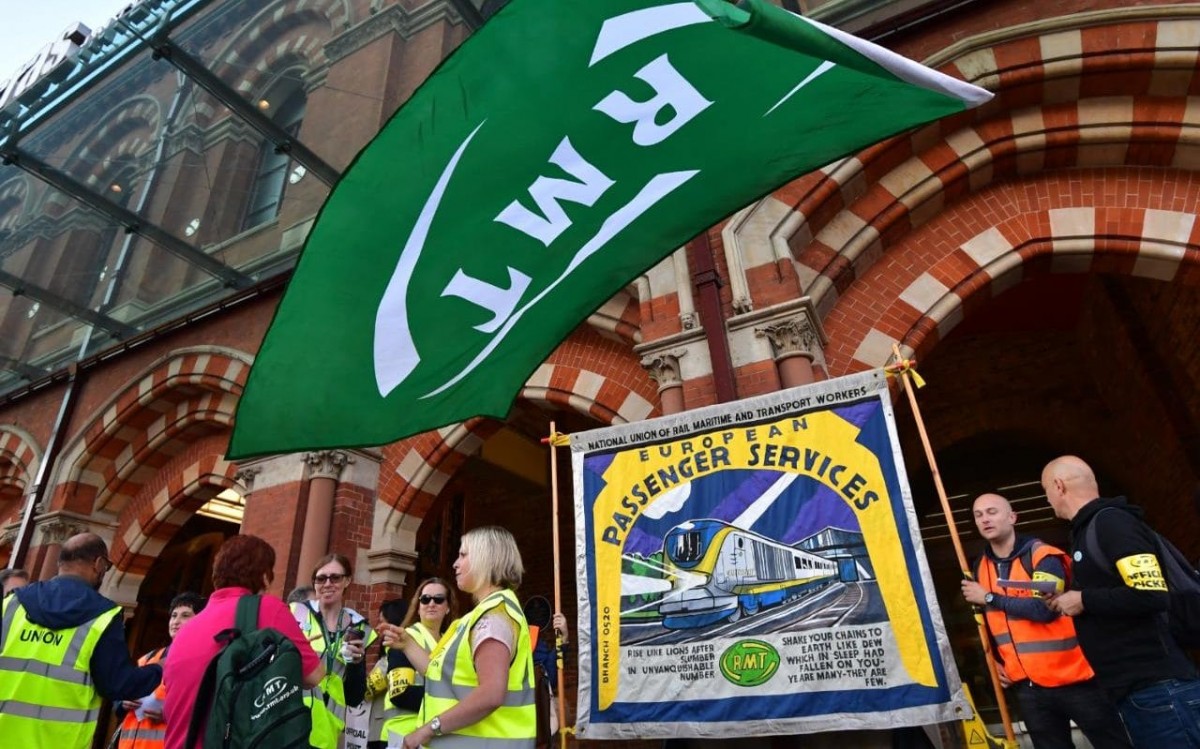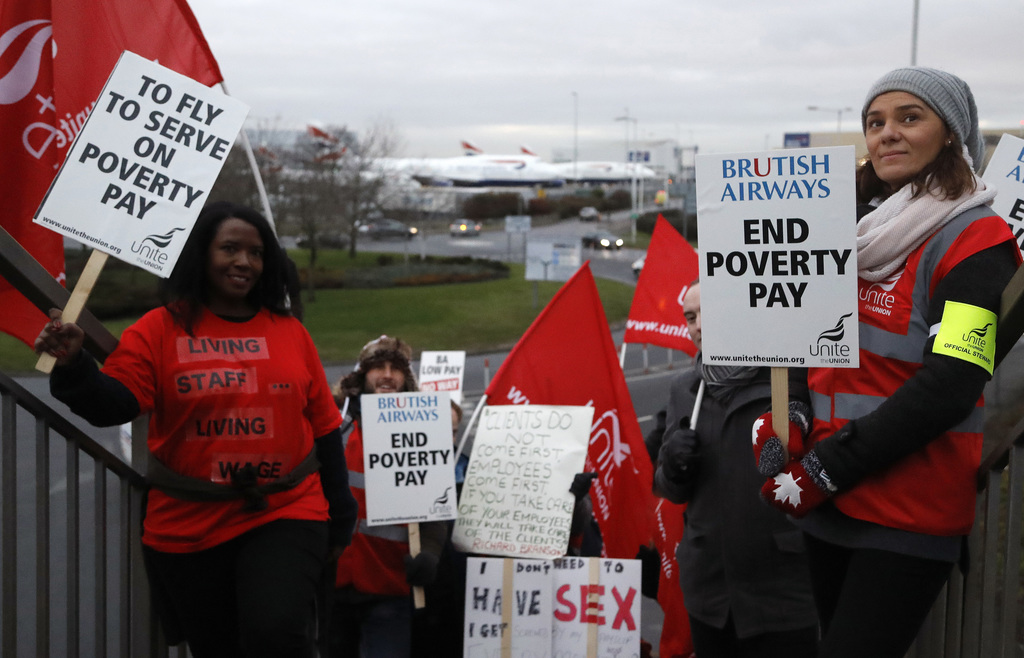
After months of organizing and sporadic walk-offs, members of the Rail, Maritime and Transport Union (RMT) in Britain threaten to strike over Christmas and New Years – including both holidays, Dec. 25th and Dec. 31, as well as Dec. 27 – to protest what say are unfair working hours on CrossCountry trains, as talks between labor and management continue to fail.
Last month, strikes paralyzed five U.K. rail services, including Southern Rail, South Western and Greater Anglia, Merseyrail and Northern Rail, representing the largest U.K. rail strike in 20 years.
Railway strikes are at the forefront of industrial action in the U.K. today, with overground train drivers embroiled in a long-running dispute over the role of Driver-Only Operation (DOO) on their trains, as well as issues with rostering and working Sundays. Thirty percent of all trains in the U.K. currently use DOO, and that number is set to significantly increase. RMT members insist a lack of on-board supervisors is endangering driver and passenger safety.
George Bearfield, with the Rail Safety and Standards Board, recently released figures suggesting that injuries and fatalities were slightly less frequent on trains staffed only by a driver – a fact strongly disputed by the labor union.
“This report has been written by someone who is employed by the same rail bosses who stand to make huge profits by introducing driver-only trains,” said RMT General Secretary Mick Cash. “To try and give this garbage a veneer of academic respectability is all the more laughable when it actually contradicts previous reports by the same organization on the safety of different methods of train dispatch.”
The RMT, Cash said before the latest round of strikes, has consistently been “unable to get serious and meaningful talks going” with rail companies over Driver-Only Operation.
Last month, the Associated Society of Locomotive Engineers and Firemen (ASLEF), which represents train drivers, accepted a DOO deal from one of the operators, Southern Railway. “The proposed deal with Southern means we will have a second safety-critical person on every train except in very exceptional circumstances,” Keith Richmond, ASLEF's head of communications, told Occupy.com.
“Passengers will be able to travel safely, secure in the knowledge that a second member of staff, i.e. an on-board supervisor, is on the train,” he said. The “exceptional circumstances” include service disruption and late sickness notification from a scheduled on-board supervisor.
The two unions are now at loggerheads. Cash hit back at the ASLEF decision, saying that "the result changes absolutely nothing in terms of RMT's campaign for a safe and accessible railway for all. A new clause in this deal deliberately sets out how, where there is no on-board supervisor, the driver will knowingly have to leave such passengers stranded on trains and stations.”
ASLEF’s deal with Southern Rail also includes a 28.5 percent pay rise over five years, leading to doubts about the group's motivations. “The greedy ****ards are on £55k ($72k) a year,” fumed Nick James, who commutes from Kent to London. “It took me over four hours to get to work during the strikes – and even longer to get home. I think the protests about safety are just a cover. Why do they need higher wages to ensure safety?”
A spokesperson for the Department for Transport expressed similar anger, while speaking in a more tactful manner about the cause of the strikes. "This dispute is not about jobs or safety – employees have been guaranteed jobs and salaries. In fact at Southern Rail, where these changes have already been introduced, there are now more staff on trains. The independent rail regulator has said driver-controlled trains, which have been used in this country for more than 30 years, are safe."
As the name suggests, Driver-Only Operation means that a train is under the supervision only of its driver. Critics say this puts a huge responsibility on the driver, who runs the risk of endangering both himself and passengers. DOO trains have a CCTV system which allows the driver to see across all passenger carriages in case of suspicious behaviour. However, if a driver falls ill or dies and thus becomes incapacitated, there would be nobody to supervise the train.
Proponents of the DOO system insist that because there are measures in place to prevent crashes, and because the DOO has been rigorously tested for safety, a driver becoming unable to perform his or her duty should not greatly impact passenger safety.
Supporters of the strike don't necessarily begrudge the strikers a pay rise. “I was severely delayed by the strike,” said Sarah Collins, who commutes from Norwich to Colchester. “However, having had a pay rise in the last 10 years, as well as feeling safe in my job, I think that even if the strike is partly over pay, then I can’t really criticize.”
The sheer scale of strike action this fall sends an unmistakable warning that in times of austerity, workers are growing less and less afraid to stand up and be heard. As one driver, who asked to remain anonymous, told Occupy.com: “I didn’t strike this time because I was scared and I haven’t been long in the job. Now that I’ve seen how many people didn’t turn up for work during the last strikes, I might well reconsider next time.”
3 WAYS TO SHOW YOUR SUPPORT
- Log in to post comments














